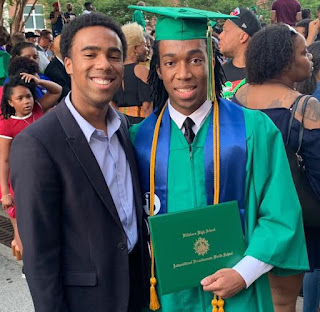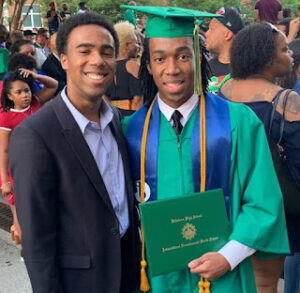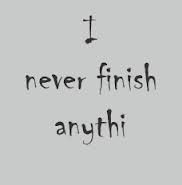An Unlikely Friend
New to town, not too long ago, I was introduced to a man who I was told could help me get acclimated to Nashville. Older and more casually dressed than I’d anticipated, Francis Guess cursed me for being a few minutes later than our agreed upon meeting time at the bar, then recited my family lineage before I sat down. He proceeded to give me a history of Nashville’s business community over rounds that quickly changed from white wine to Jack Daniels, introduced me to a steady stream of lady friends and gentlemen bankers and lawyers the whole time, and refused to let me buy my own drinks hours later when I was dismissed because he was late for “the ballet!”
Such was the beginning of perhaps an unlikely friendship.
Over the ensuing years Francis and I talked, strategized, partied, drank and joked. During his time I was tutored – on political strategy and the history of Tennessee and its government. I was chastised – for faux pas and mistakes that I’d made. I was laughed at and called names, encouraged and coached.
I was celebrated – with a surprise birthday party, no less! I was trusted – with insights (“I know where the bodies are buried, Hicks”), strategies and maybe even a few of his frustrations and dreams. I was reminded – of the inferiority of an education obtained any place other than Tennessee State and “Van-der-bilt University.” I was defended and told “you’re on your own!”
I was introduced – to the people who make the region move in diverse establishments from The City Club, Jimmy Kelly’s and Morton’s to Out of Bounds, J. Alexander’s and The Cave. And I was nominated – sometimes without my knowledge – to civic boards that drew me closer to this city and helped me to understand why he so loved his hometown.

Many will also point out that Francis would say things to people that only he could get away with. He made women blush and men cringe, but most of these same people respected him, and many of them also sought his counsel (“I don’t seek out information, Hicks. People just tell me things.”) Not to be attempted by amateurs, Francis was at once confounding and straight forward. A rare combination of characteristics that would make him, for many of us, an unlikely friend.
But that was Francis: a man with the intellect to walk with kings, the persona to kick it with the common man, and the desire to be a connector and to be of service for the benefit of us all.
Connecting dots and connecting people may be what he’s remembered most for. Francis solved problems for executives, politicians, preachers, musicians, kids and others who crossed his path. Often, he did so by helping you see yourself, your problem or your world through a different lens – and then making a connection with another person or experience that could help you bring focus to your new, broader perspective.

Helping me to appreciate a different point of view and a renewed sense of urgency, I recall an impromptu set of remarks that Francis made about the National Museum of African American Music (NMAAM). He was in a surly mood that evening, and reluctantly rose to share a few words with the informal gathering the projects early organizers. With a scowl, he began to talk about a recent trip to south Nashville at dawn…
“Sometimes, as the sun rises, I go to the top of a hill near Father Ryan High School, south of the city…
At this, the site of the Battle of Nashville in 1865, the 13th U.S. Colored Troops fought in the Civil War led by a little boy who was beating a drum. This child, no more than 11 or 12 years old, kept cadence for the troops heading into conflict and probably represented one of the earliest introductions of our music to this city.
He marked time while marching towards the Confederate army, commanded by Gen. John Bell Hood, and knowing that death was a likely outcome. I can almost hear that drummer boy, leading men into battle with tired feet but an invigorated longing to be free.
I can almost hear that drummer boy, recalling a pulse from a distant land and a tempo inbred from generations of toil and tribulation. I think I can hear the rat-a-tat-tat of the drummer boy’s snare drum which would portend victory for Gen. George Thomas’ troops. I’m almost sure that I can hear that drummer boy! That beat was for you – and for me. That rhythm was the passion, the hope and the yearning for my freedom.”
The room fell silent as he spoke, and a few wiped tears. Francis had connected the dots – from the Civil War to the present day, conservatives and liberals, black and white, now all had a reason to be passionate about a project that he’d long thought was a cultural and economic imperative for the region. He’d placed the explanation point at the end of the slogan My Music Matters!
As Francis took his seat that evening, he smiled and was clearly in a better mood. His burden was lifted, but those in attendance were made uncomfortable by his truth – we all now had a decision to make.
Yet, he didn’t realize the impact that he’d had and began to joke with those nearest him. But the party broke up shortly after that. There wasn’t much else left to say.
Like NMAAM, many of the dots that Francis connected were a work in process. He actually worried some about whether or not he’d successfully passed the torch of service on to others. And so, let’s be clear, his passing leaves many of us with a load to carry and maybe an incomplete assignment.
I’m clear what mine is. I too hear the rat-a-tat-tat of that drummer boy.
But what is yours? You too now have a decision to make. And once you’ve made it, get focused. Get it done. XEQTE! (Henry, what the hell does your license plate say?) Get yourself a Jack and Ginger and steel your resolve to make Nashville a better place and Tennessee a better state. It‘s the best way I can think of to honor our unlikely friend.







